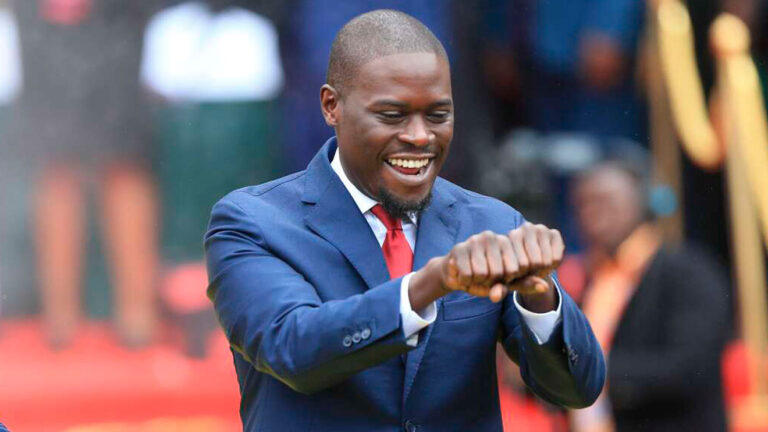NAIROBI: Deputy President Rigathi Gachagua’s recent visit to Nairobi markets has ignited a political firestorm, pitting him against Governor Johnson Sakaja and raising questions about the Governor’s future re-election prospects. The sources detail the escalating conflict, its ethnic undertones, and the potential ramifications for both politicians.
Gachagua’s market tour which was ostensibly to address trader concerns, was widely seen as a power play, signaling his intent to influence city politics ahead of the 2027 elections. He publicly criticized Sakaja’s policies, particularly the relocation of traders from road reserves, urging the Governor to prioritize their interests. Gachagua’s stance resonates with the Kikuyu community, a crucial voting bloc that propelled Kenya Kwanza candidates, including Sakaja, to victory in 2022.
Johnson Sakaja, however, accused Gachagua of inciting traders and resorting to “ethnic political mobilisation”. He defended his policies as necessary for public safety, citing a tragic accident in Kericho County as justification for moving traders from hazardous roadside locations. Furthermore, he emphasized his commitment to public engagement and consultation, refuting Gachagua’s claims to the contrary.
This clash exposes the complex ethnic dynamics that often shape Nairobi’s political landscape. Historically, the Kikuyu community has leaned towards government-aligned candidates, while other significant groups have gravitated towards opposition figures like Raila Odinga. With Gachagua seemingly aligning himself with the Kikuyu vote, Sakaja faces a dilemma as he navigates re-election.
Adding another layer to this political drama is the potential for a Gachagua-Kalonzo Musyoka alliance in the next election. Such a partnership could further complicate Sakaja’s re-election bid, potentially forcing him to seek support from different quarters.
Intriguingly, Sakaja appears to be cultivating closer ties with Odinga and the ODM party. He has appointed ODM members to his administration and even visited Odinga at his rural home, suggesting a strategic move to court the opposition’s support base in Nairobi. This burgeoning alliance could prove crucial for Sakaja if he loses the backing of the Kikuyu community due to Gachagua’s maneuvering.
MORE: American Institutes for Research Opens new Kenya Office to Aid Universities in East Africa
The sources also highlight Nairobi’s historical resistance to re-electing governors. Sakaja’s predecessors, Evans Kidero and Mike Sonko, both failed to secure second terms. This trend further underscores the challenges Sakaja faces as he seeks to defy history and win re-election in a complex and fluid political environment.

